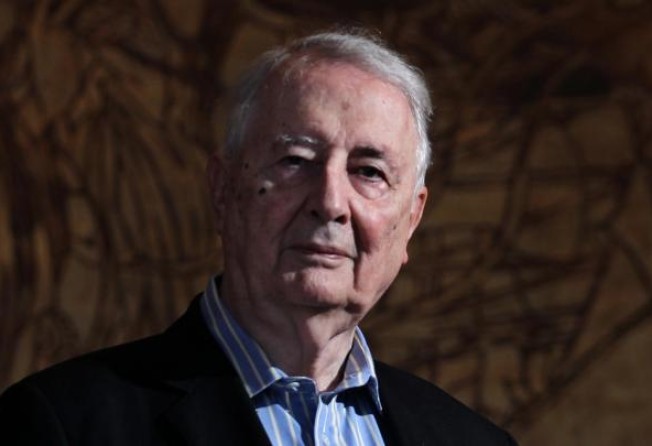Reform unlikely, says China expert Roderick MacFarquhar
Political elite is so caught up in corrupt system that an overhaul would see end of the regime, says US professor

China's incoming leaders were unlikely to embark on sweeping reform unless they faced a life-threatening crisis, Professor Roderick MacFarquhar, a leading China expert, said in an interview yesterday.
With a little over a week before the start of the Communist Party's national congress, there has been speculation incoming party general secretary Xi Jinping may launch political reforms to address widespread social and economic problems.
But MacFarquhar, a professor of history and political science at Harvard University, said the vested interests of the political elite were so entrenched in a corrupt system that an overhaul would amount to dismantling the regime.
"They are frightened that if they start something, this might be the taking away of the stone that leads to an avalanche," said MacFarquhar, an expert on Mao Zedong and the Cultural Revolution era. He gave a lecture at Chinese University on Monday and speaks at the Foreign Correspondents' Club today.
Despite hopes the regime can peacefully transform itself into a democracy with rule of law, MacFarquhar said he could not see such a transition, which would require the ruling elite to give up its power and privileges.
He said it was the trauma of the Cultural Revolution that prompted reform in the 1980s.
Although a political system's inertia often meant a fragile regime could exist for years, MacFarquhar said unpredictable circumstances could trigger its collapse. "You don't know what can unseat a fragile system," he said.
Some have criticised the failure of President Hu Jintao and Premier Wen Jiabao to make progress on political reform while in power. MacFarquhar said that was because they were mindful of the consequences of reforms undertaken by former Soviet leader Mikhail Gorbachev, which led to the crumbling of communist rule.
"Political reform is fraught with dangers … Hu is not a risk-taker," he said. "It's a virtually insoluble dilemma - how do you cure corruption that's so widespread, that's from top to bottom?"
Part of the fragility of Chinese communist rule lay in the lack of a succession mechanism, MacFarquhar said, with new leaders, emerging as a result of back-room deals and lacking institutional legitimacy.
He said recent rumours that Mao Zedong Thought could be written out of the party's constitution were unlikely to be true.
"You cannot remove Mao because he is the legitimacy factor," he said.
MacFarquhar said Mao and Deng Xiaoping picked their successors, but Xi, lacking an elder's blessing, would face an insurmountably tough job in tackling the country's myriad problems while avoiding measures that would cause the party to lose power.
"I tremble for Xi Jinping. I don't see how he can find that path," he said.